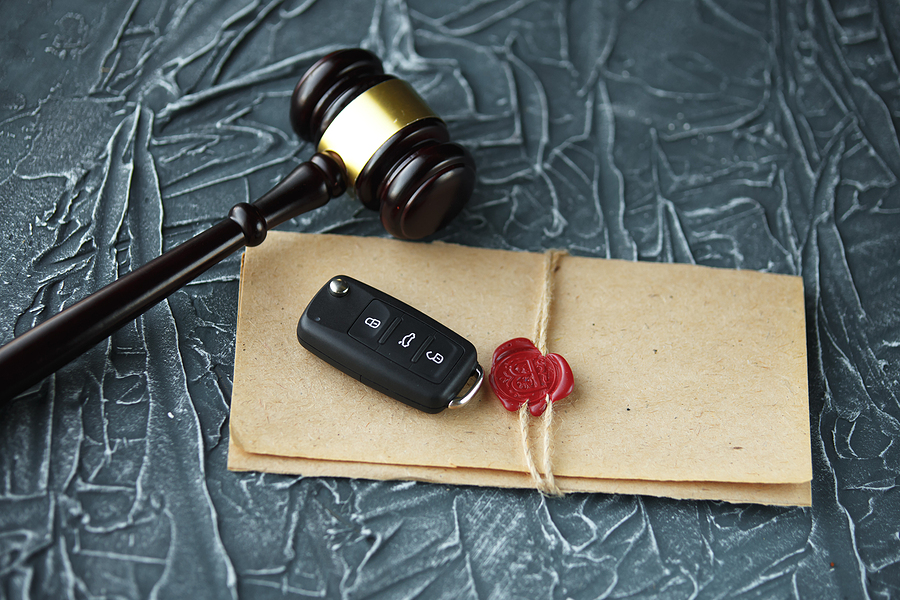Considering Cosigning a Bail Bond? Here’s What You Need to Know

Did you recently learn of a loved one’s arrest? In most cases, the judge will set bail within 48 hours of the defendant’s booking. When you know the bail amount, you can get your friend or relative out of jail by paying the full amount of bail to the court in cash or property.
But what if you don’t have enough cash or valuable property on hand? Does the defendant have to stay in jail until the case closes? Nope. You can get a bail bond from a licensed bond agent to secure your loved one’s release. If you take this route, you’ll have to cosign for the bail bond, but before you do, there are a few very important things you should know.
The experts at A Way Out Bail Bonds explain what you need to know about cosigning a bail bond below.
You’re Signing a Legally Binding Financial Agreement
When you cosign a bail bond, you’re agreeing to be held financially liable for paying the full amount of the defendant’s bail should bail forfeiture occur. If your loved one misses a court appearance, commits another crime, or violates any other terms of his or her bail, and gets caught, the court will consider the bail bond forfeit.
Ultimately, your loved one will be taken back into police custody, and you’ll owe the court the full amount of the original bail. This is not something you can get out of — you signed your name on the dotted line of a legally binding agreement.
Unless you’re supremely confident your loved one will adhere to the terms of his or her release, think long and hard before you cosign a bail bond.
You’ll Need to Pay a Fee to Get the Bail Bond
When you visit a bond agent to secure a bail bond, you’ll need to have enough money to pay the bail agent’s fee. That fee is typically around 10% of the defendant’s total bail amount. If the judge set bail at $10,000, you’ll need to pay the bond agent $1,000 to get the process started.
You will never get that money back. It’s essentially a service fee for the bond agent’s expertise, time, resources, assistance, and risk. Bail bonds are not a free service — agents have to put food on their tables too.
If paying that fee will put you in a shaky financial position, cosigning a bail bond may not be in your best interest. While you no doubt want to help your loved one, it’s never a smart idea to put yourself in a potentially precarious position to do so.
You’ll Need to Prove You’re a Good Candidate to Cosign
When a bond agent issues you a bail bond, they’re taking on risk. And any time another party is taking on financial risk, they’re going to want proof that you can repay any funds issued if things go south. They have to protect their interests.
Depending on the bond company you choose to use, the agent may ask you for:
- Proof of employment
- Proof of financial capability to make regular payments
- Proof of residency
These requirements can vary and are typically determined on a state-by-state basis. Your bond agent will let you know what they need from you during your initial phone call, email, or visit.
You May Need to Provide Collateral
If you don’t have the cash on hand to pay the bond agent’s fee, or if you have some cash but not quite enough, the agent may ask for collateral in addition to the money. If you choose to provide collateral, you’ll get it back at the conclusion of your loved one’s case — provided he or she attends all required court dates.
If, however, your loved one forfeits bail, you’ll lose any collateral you provided. If you handed over the title to your vehicle, the deed to a property, a piece of expensive jewelry, or a family heirloom, you can kiss it goodbye if things go south.
Need a Bail Bond?
If you’re ready to cosign a bail bond for a loved one in jail, get in touch with our team at A Way Out Bail Bonds in Dallas and Arlington. We’ve proudly served the needs of Dallas and Tarrant County residents for over 25 years, and when you need fast, professional, confidential bail bond assistance, we’re here for you too. To learn more or get started, give us a call today at (214) 760-9978 (Dallas County) or (817) 261-2828 (Tarrant County). You can also send us a message with any questions, and we’ll be in touch.
